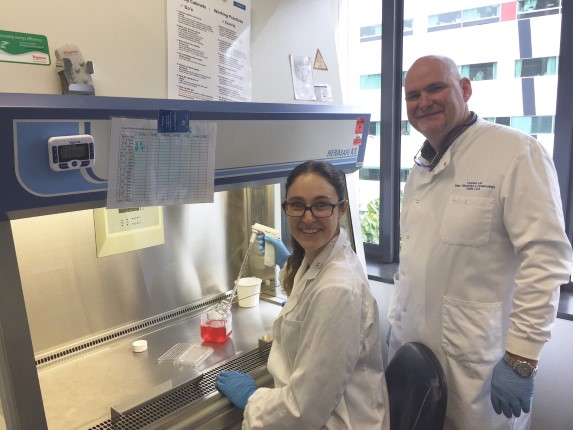Mum, you are what your babies make you

Dr Cherie Blenkiron and Professor Larry Chamley, University of Auckland.
Posted: Tue, 24 Jan 2017
A human fetus produces large amounts of genetic material (e.g. DNA). In normal pregnancy, the placenta releases ‘cell free’ fetal DNA into the mother’s blood via vesicles – tiny fluid-filled sacs – every day until the baby is born.
Although this genetic association was thought to end at birth, researchers at the University of Auckland believe otherwise. Professor Larry Chamley and Dr Cherie Blenkiron suspect that some of this fetal DNA is transferred permanently into the maternal cells. If so, then mothers may start to produce proteins encoded by the fetal DNA.
In this new Marsden-Funded study, Professor Chamley and Dr Blenkiron will define the DNA content of the extracellular vesicles released from the placenta. They will determine whether this DNA is stably transferred to maternal cells, how long it can remain there, and whether it can alter characteristics of the recipient cells – possibly affecting mothers over the long-term.
Previous work has shown that in some mothers, fetal cells protect them from breast or thyroid cancer. However, in other women, the fetal cells seem to promote the development of colon cancer and autoimmune diseases.
If the researchers find that fetal DNA is permanently taken up by the mother’s cells, they will investigate whether fetal DNA, like fetal cells, could cause some mothers to develop, or be protected from, diseases later in life. Thus, the results of this research will have implications for the long-term health of mothers everywhere.
Total Funding: $800,000 (excl. GST) over 3 years
Researchers: Professor Larry Chamley, Department of Obstetrics and Gynaecology, University of Auckland, Private Bag 92019, Victoria Street West, Auckland 1142
